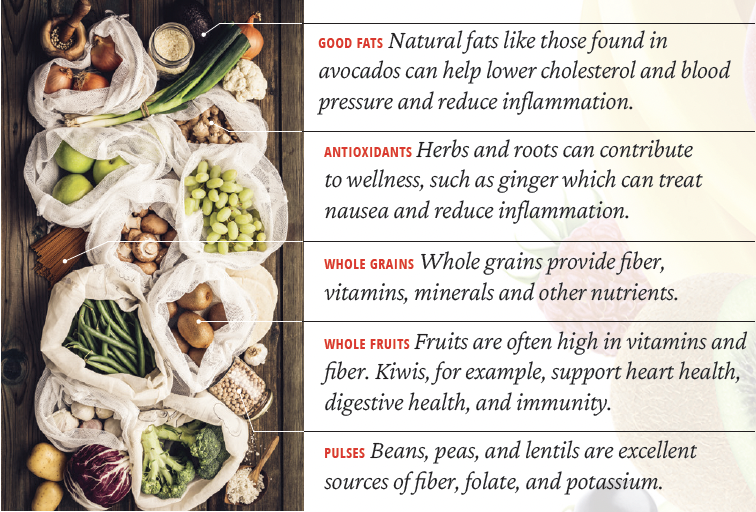Making a Case For Plant-Based Eating
Eating healthy is not a diet. It’s a way of life. It means choosing to feed your body what it needs to function its best. However, knowing what’s best to eat may not be easy to figure out despite the seemingly infinite amount of available information.
Fortunately, scientific research from around the world shows a common pattern among the healthiest diets— they include plant-based, whole, unprocessed foods. A plant-based diet can prevent chronic diseases, dramatically reverse illnesses like heart disease and diabetes, and help people live longer, more vibrant, and energetic lives.
As a physician and a registered dietitian, we not only recommend a plant-based diet because we know it can lead to remarkable results—we also practice what we preach. We want you to experience the same benefits in your life.
We want to dispel the notion that eating healthy is too difficult, time-consuming, or expensive. [There are] simple, nutritious and delicious meals that are satisfying and don’t require spending a lot of time in the kitchen.

Photo Courtesy Getty Images
Many diets such as vegan, vegetarian, Mediterranean, and even omnivore can be considered plant based. A predominantly whole-food, plantbased diet can include animal and processed foods as long as they play a secondary role. Eating plant-based does not mean you have to take an all or nothing approach to plant foods.
A key difference between eating a plant-based diet versus a vegetarian or vegan diet is that plant-based eating is defined by what it includes— high-quality plant food with the maximum amount of nutrients—rather than by what it excludes. Strictly eliminating animal products doesn’t guarantee that your diet is nutritious. Many processed foods, such as pasta, pizza, and desserts, which offer little nutritional value, can be a part of vegetarian diets.
Predominantly whole-food, plant-based eating seeks to minimize food that can harm health by maximizing foods that add to quality of life and longevity.
The main takeaway is that following a plant based diet does not mean you have to limit yourself to only plant foods. No one food will make or break your diet. However, the more disease-fighting nutrients you consume from plant-based foods, and the less pro-oxidant and pro-inflammatory disease-causing components you get from animal and processed foods, the more you will benefit from what you eat. The higher the dose of plant-based whole foods, the greater the response.

- Maintain your weight in a healthy range without forfeiting essential nutrients
- Lower your blood sugar and prevent diabetes
- Lower cholesterol and blood pressure levels
- Prevent and reverse heart disease
- Reduce the risk and progression of certain types of cancer
- Reduce the risk of cognitive decline
- Improve your mood, sleep, and energy
- Add healthy years to your life
A study of nearly 90,000 people demonstrates the remarkable health benefits from incremental increases in eating plant-based whole foods. The more the participants adhered to eating plant-based food, the lower their rates of having diabetes and hypertension.
Compared to people who ate red meat, poultry, fish, milk, and eggs more than once a week, those who consumed these foods less than once a week had a 28% lower risk of diabetes and a 23% lower risk of hypertension. Those who didn’t eat red meat or poultry at all, but still consumed fish, milk, and eggs, had a 51% lower likelihood of diabetes and a 38% lower risk of hypertension. The group that followed a dietary plan that didn’t include any meat had a 61% lower likelihood of diabetes and a 55% lower probability of high blood pressure. Finally, the group that didn’t consume any animal products at all—no meat, dairy products, or eggs—had a dramatic 78% lower risk of diabetes and a 75% lower chance of hypertension.
These results, and those of similar studies, illustrate two main findings:
- Plant-based eating could be even more effective than medication or medical procedures.
- Making small changes in your food choices can remarkably improve your health and well-being.
The health advantages of plant-based whole foods take effect within weeks and continue to accumulate with time.
Email the Editor








